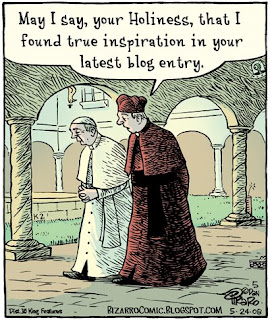Ben Goldacre over at BadScience has written an interesting piece showing that the reason journalists don’t link to primary sources is – basically they are lying and would look really stupid if they did. Naturally there are exceptions but it seems to be a plausible argument and the examples are amusing and enlightening.
He goes on to compare media forms and argues for the reasons bloggers link to sources:
Of course, this is a problem that generalises well beyond science. Over and again, you read comment pieces that purport to be responding to an earlier piece, but distort the earlier arguments, or miss out the most important ones: they count on it being inconvenient for you to check. It’s also an interesting difference between different forms of media: most bloggers have no institutional credibility, and so they must build it, by linking transparently, and allowing you to easily double check their work.
I think that this only catches half the truth. Sure bloggers lack “institutional credibility” but when they do have such credibility they continue to link (well, often at least). I think its a cultural thing. News media comes from an analog tradition where you were not necessarily required to link to others. In addition to being cumbersome and time-consuming (a bit) it also takes up space.
Blogs are built on a different base technology and their culture forms from that. Links are not difficult, the readers demand them (because of the nature of web) and linking becomes a natural part of the way in which blogs work. This also means that the reader of a blog will judge a post, in part, from the links it contains.
Or is this just a romantic/naive view of blogs?

